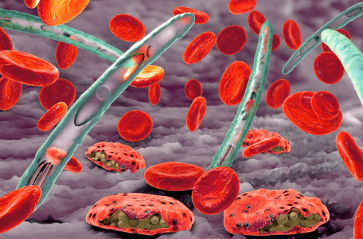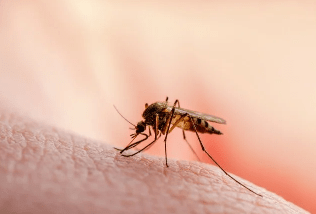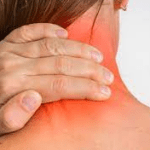A disease caused by a plasmodium parasite, transmitted by the bite of infected mosquitoes. The severity of malaria varies based on the species of plasmodium. Symptoms are chills, fever and sweating, usually occurring a few weeks after being bitten. People travelling to areas where malaria is common typically take protective drugs before, during and after their trip. Treatment includes antimalarial drugs.
While the disease is uncommon in temperate climates, malaria is still common in tropical and subtropical countries. Each year nearly 290 million people are infected with malaria, and more than 400,000 people die of the disease.
Symptoms
Malaria is a disease that typically features a fever, chills, and headaches. It can progress to cause severe or life threatening complications.
- Fever
- Chills
- General feeling of discomfort
- Headache
- Nausea and vomiting
- Diarrhea
- Abdominal pain
- Muscle or joint pain
- Fatigue
- Rapid breathing
- Rapid heart rate
- Cough
Some people who have malaria experience cycles of malaria “attacks.” An attack usually starts with shivering and chills, followed by a high fever, followed by sweating and a return to normal temperature.

Causes
Malaria is caused by a single-celled parasite of the genus plasmodium. The parasite is transmitted to humans most commonly through mosquito bites.
- Uninfected mosquito:A mosquito becomes infected by feeding on a person who has malaria.
- Transmission of parasite:If this mosquito bites you in the future, it can transmit malaria parasites to you.
- In the liver:Once the parasites enter your body, they travel to your liver — where some types can lie dormant for as long as a year.
- Into the bloodstream:When the parasites mature, they leave the liver and infect your red blood cells. This is when people typically develop malaria symptoms.
- On to the next person:If an uninfected mosquito bites you at this point in the cycle, it will become infected with your malaria parasites and can spread them to the other people it bites.
Other Modes of Transmission
Because the parasites that cause malaria affect red blood cells, people can also catch malaria from exposure to infected blood, including:
- From mother to unborn child
- Through blood transfusions
- By sharing needles used to inject drugs
Complication
Possible complications of malaria include:
- liver failure, which can lead to jaundice
- kidney failure
- unusually low blood glucose
- swelling and rupturing of the spleen
- shock, which includes a sudden fall in blood pressure
- pulmonary edema, where fluid builds up on the lungs
- acute respiratory distress syndrome which affects breathing
- dehydration
Treatment
Medication:
The most common antimalarial drugs include:
- Chloroquine phosphate:Chloroquine is the preferred treatment for any parasite that is sensitive to the drug. But in many parts of the world, parasites are resistant to chloroquine, and the drug is no longer an effective treatment.
- Artemisinin-based combination therapies (ACTs):ACT is a combination of two or more drugs that work against the malaria parasite in different ways. This is usually the preferred treatment for chloroquine-resistant malaria. Examples include artemether-lumefantrine (Coartem) and artesunate-mefloquine.
Other common antimalarial drugs include:
- Atovaquone-proguanil (Malarone)
- Quinine sulfate (Qualaquin) with doxycycline (Oracea, Vibramycin, others)
- Primaquine phosphate
Prevention
If you live in or are traveling to an area where malaria is common, take steps to avoid mosquito bites. Mosquitoes are most active between dusk and dawn. To protect yourself from mosquito bites, you should:
- Cover your skin: Wear pants and long-sleeved shirts. Tuck in your shirt, and tuck pant legs into socks.
- Apply insect repellent to skin: Use an insect repellent registered with the Environmental Protection Agency on any exposed skin. These include repellents that contain DEET, picaridin, IR3535, oil of lemon eucalyptus (OLE), para-menthane-3,8-diol (PMD) or 2-undecanone. Do not use a spray directly on your face. Do not use products with OLE or PMD on children under age 3.
- Apply repellent to clothing: Sprays containing permethrin are safe to apply to clothing.
- Sleep under a net: Bed nets, particularly those treated with insecticides, such as permethrin, help prevent mosquito bites while you are sleeping.


